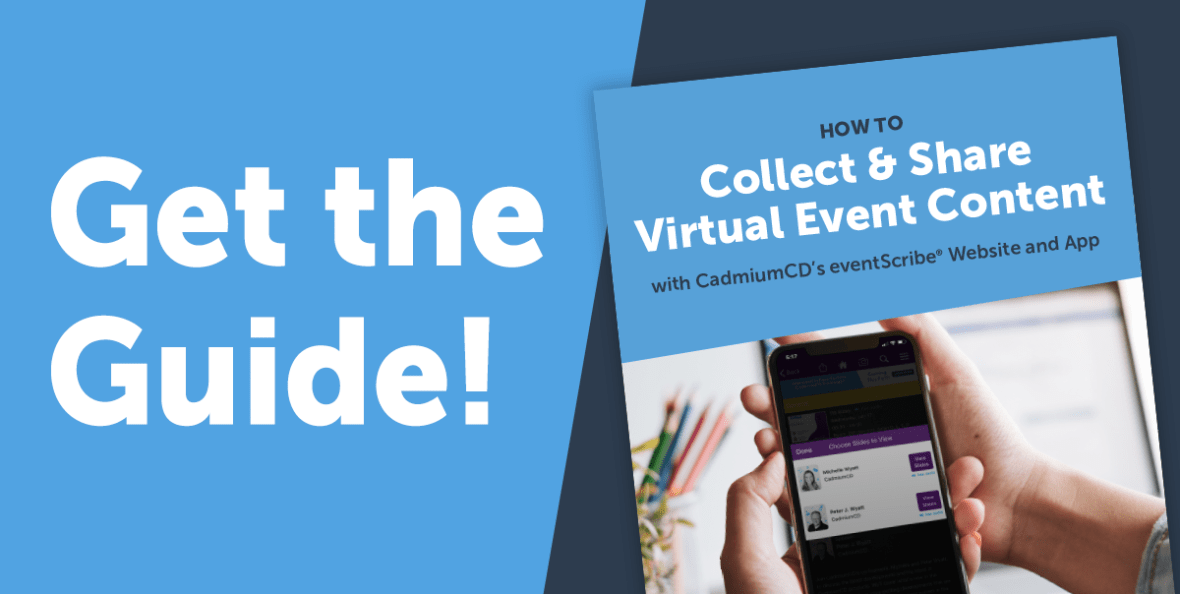Why Go Virtual?
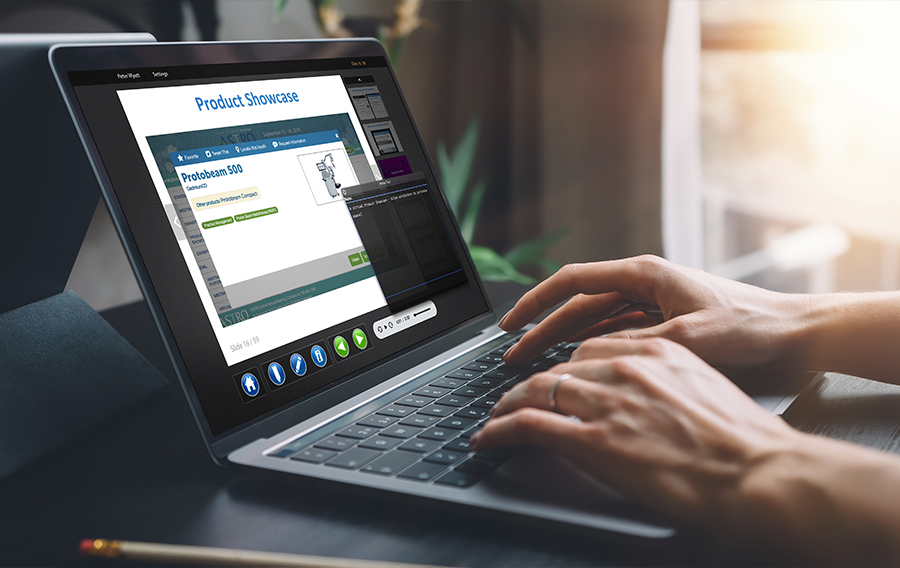
CadmiumCD CTO, Peter Wyatt, recently held a webinar to discuss how products like Conference Harvester and eventScribe can be used for virtual events. Many events are deciding to transition their physical events to virtual events right now in light of the COVID-19 coronavirus pandemic. In this article, we detail a few reasons why to go digital, explore some of the options for virtual events, and detail how meeting planners can provide value to all their stakeholders.
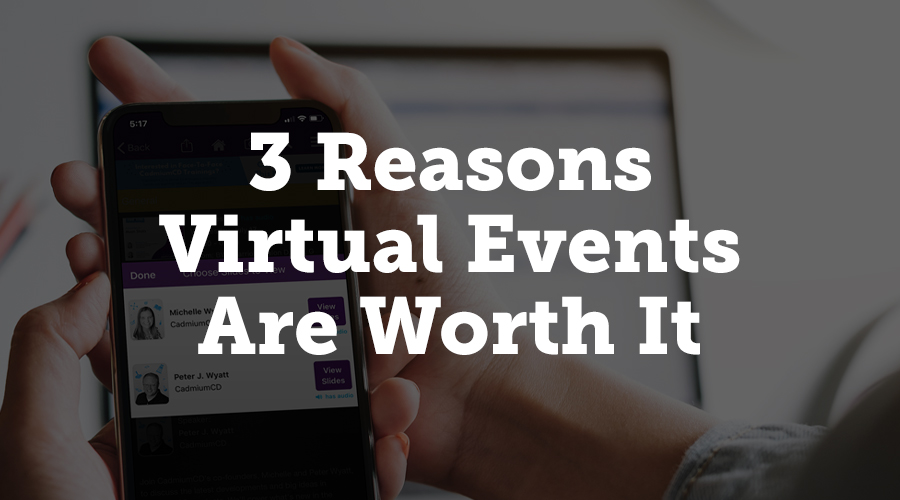
3 Reasons Virtual Events Are Worth It
Transitioning from physical to digital can be a difficult choice. There are a lot of moving parts that need to be readjusted during this decision. However, there are a few crucial reasons why going virtual might be better than cancelling your physical event.
- Retention of Revenue
Virtual events can help you retain some of the revenue your events generate for your organization. Sponsorship and registration dollars are two examples of the type of revenue you might be able to save with a virtual event.
You can also create opportunities for exhibitors and sponsors to connect with attendees and retain some of their own ROI from your audience.
- Obligation to Educate Members
Most organizations are committed to providing education to members. An important part of meetings is creating an environment where attendees can connect and share ideas.
Virtual meetings are a great way to deliver education to attendees in the event that the physical meeting must be cancelled.
- Use Resources Already Created
If you were planning on having a live meeting and had to cancel, you put a lot of time and effort into creating resources for your attendees. You’ve worked to collect content from speakers, built a website and app, and may have put together other tools to help attendees learn and engage.
Don’t let these resources go to waste. Put them to work on a virtual event instead.
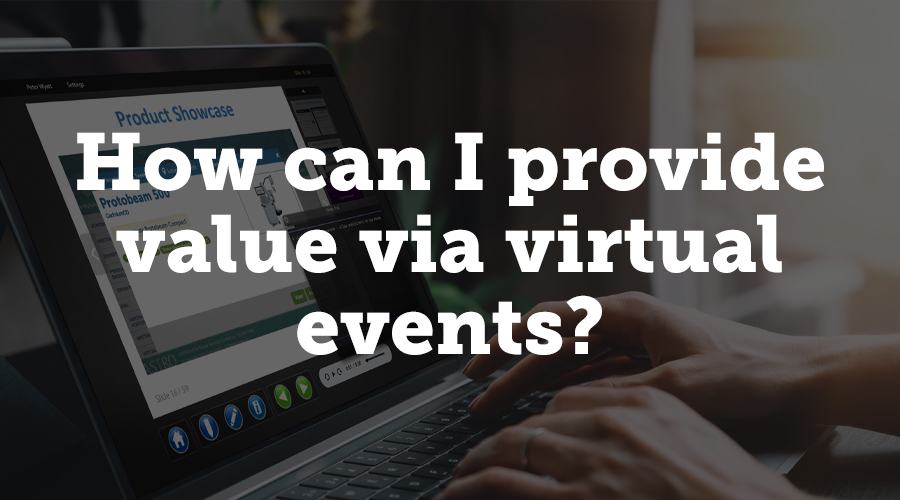
How can I provide value via virtual events?
Physical events provide a lot of value to all the stakeholders that attend. A big concern meeting planners have in making the switch to digital events is how they’re going to provide the same kind of value in a virtual environment.
Download the White Paper
To get a detailed breakdown on how the options below work, download the white paper. In this white paper we share how to decide between a virtual and hybrid event, tools to use to manage your digital events, and detailed ways to provide value to attendees, speakers, and exhibitors.

Providing Value to Attendees
Delivering Education
Delivering education to members and prospective members always comes first and Conference Proceedings are a great way to deliver educational content to attendees. But another aspect of education at conferences comes in the form of engaging with content and networking with colleagues. Here are a few ways to deliver educational value to digital attendees:
- Note-Taking on Slides
- Moderator Questions
- Transcripts & Session Evaluations
Creating Networking Opportunities
Part of the beauty of live physical events is running into an old colleague, striking up a conversation with a new contact, or grabbing a coffee with a group of like-minded people. While this can’t be fully recreated online, there are certainly options to make room for networking online.
- Activity Feed
- Personal Meetings

Providing Value to Speakers
Speakers are your greatest asset at an educational conference. They provide content to attendees (usually for free) and keep people interested and engaged in the latest community research. Keeping them organized and providing clear communication is the key to success for providing speakers with value while you transition from physical to digital events.
A speaker portal is a great way to do this and provides value in two specific ways:
- Upload Materials
- Gain Feedback

Providing Value to Exhibitors
It’s important to also deliver value to your largest source of revenue — exhibitors and sponsors. These stakeholders typically want access to your attendees via conversations, advertising, and other forms of connection and brand recognition.
Here are a few ways you can deliver value at a virtual event via event tech for sponsors and exhibitors:
- Exhibitor Profiles & Contact Info
- Brochures & PDFs
- Interactive Floor Plan
- Virtual Scavenger Hunts
- Sponsored Sessions
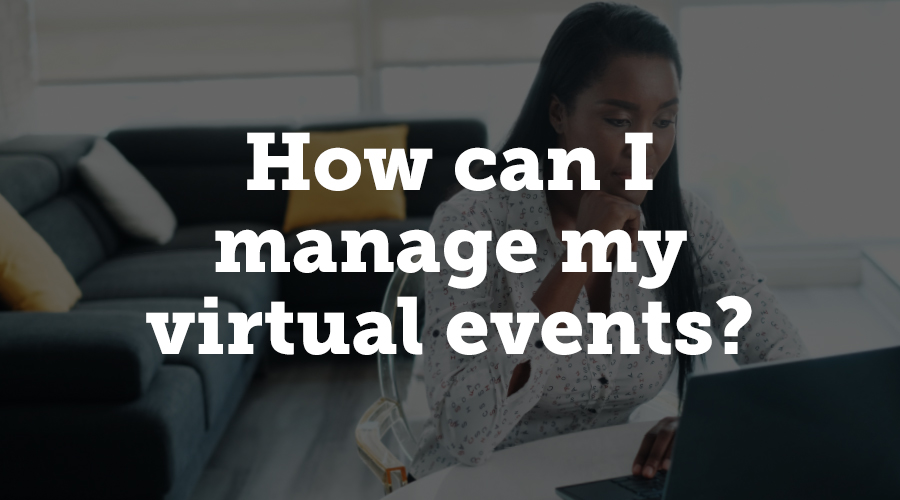
How can I manage my virtual events?
The most important thing in managing your virtual educational event is collecting and sharing content. We created a guide exclusively on how you can use the Conference Harvester and eventScribe to collect content from speakers and share it with your attendees.
Speakers can use the platform to upload materials and record audio on individual slides from the comfort of their office or home, and attendees can download the app to listen to audio slide-by-slide on the app while taking notes.
The best part is you, as the meeting planner, have to do very little outside of setting up speakers tasks in the Conference Harvester and working through the process of setting up an eventScribe App.
Want to learn how to use CadmiumCD for your virtual events?
Visit our virtual events resources page, download the white paper, or schedule a demo to see how the platform can work for your specific needs.

